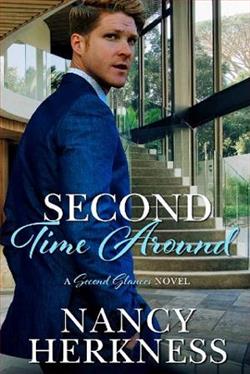Page 100 of The Surviving Sky
“You speak as though a life can just be erased, that it has no meaning, simply because of rebirth. You are relying far too much on an unknown future to solve the problems of this life. With thinking like that, we could all kill ourselves at the least sign of trouble. We could let go of a dozen Oams, without consequence or guilt. We could absolve ourselves of any and all responsibility.”
Iravan shook his head. “You misunderstand me. Rebirth does not give us a blank slate; the desires of our consciousness carry forward within our depth memories, in the form of our actions and intents. Bharavi and I made the pact, knowing it could impact the circumstances of our rebirth. You were right when you said she was scared andangry—butit was not merely when she was fighting for her life. She was scared when she tried to convince me of the goodness of Ecstasy. I’d thought then that her fear was forme—forwhat she’d have to do to me to fulfill our pact. But surely a part of it was for how any action she’d take would impact her own consciousness. We understood this, but we still choseit—”
“Which makes this interpretation all the more dangerous,” Ahilya said. “Where would such a path end? You do not have the ability to traject and you cannot imagine yourself without it, so you kill yourself? Your life changes, so you choose death instead of trying to heal? Imagine the implications for those of us who couldnevertraject—imaginewhat it means for the people in the infirmary, for an ashram to think likethis—awholecouncil—”
“The council doesn’t think like this,” Iravan said. “This was our choice, Bharavi’s and mine, to do what we wanted with our lives after excision. Few make this choice, and it is not encouraged or publicized. Everyone would inquire into the reason behind Ecstatics dropping dead after their Ecstasy was revealed, if it were common practice. The secret of excision would be out immediately. This was not a pact we madelightly—”
“But you made it,” Ahilya said. “And you did so without me, our marriage be damned.”
Her voice was quiet, without rancor or accusation, but for the first time since the beginning of this conversation, Iravan’s gaze fell. He swallowed hard, his fingers curling into fists, releasing, curling again.
“That,” he said softly, “was my greatest shame. It was the one thing I needed to tell you but couldn’t. For that, as for so many other things, Ahilya, I owe you a deep apology.”
Ahilya pulled her shawl closer around her. The breeze was cold despite the hot sun.
His words were sincere, but she could not help the wave of terror and fury that rippled through her. After the incident at the solar lab, she had made her way to the temple; she had been afraid, when Megha had told her about the architect in Ecstasy, that it had beenIravanin Ecstasy. What if it had been? What if Iravan had been in Bharavi’s place? He had never wanted her to see him like Maiya or Manav, but she was his wife. How dare he allow himself death without her consent, without her knowledge or acceptance? He washers—hehad beenhers, yet this was the decision he had chosen to make? The betrayal ran deep within her, and Ahilya took a deep breath, trying to calm herself.
“It’s only a matter of time before the secret is out,” Iravan said, as though he had heard her thought. “The spouses of architects don’t make a healbranch vow. Rumors already exist, and the council threatens and cajoles the citizens who do know this secret into silence. Until we have a way to not be reliant on trajection, we cannot widely share the truth; the architects and their spouses, all of us must sufferit—andthat’s why sungineers are tasked with finding a battery to store trajection. Until that happens, we must propagate our lies so we don’t spread our shame.”
The weight of all these revelations settled heavy into Ahilya’s shoulders.
She curled further into herself.
What had been her duty for all those years of marriage? She had always known about the material bonds of an architect, even if she’d never known the extent. That knowledge had formed a bond and then a prison for her and Iravan. But they had wedbeforehe’d become a Maze Architect; they had been in love once. His mysteries had finally become too much, but if she’d known this about excision, would that have changed her actions? Her guilt and angernow—werethey fair? Were theyright? She couldn’t think clearly.
“All is not lost to you,” she mumbled. “Like Reetha, you could have achild—youcould adopt one.”
“You mistake me.” Iravan sounded tired. “I didn’t just want a child, Ahilya. I wantedourchild. I didn’t want to keep secrets from you, and I wish I could say I’d have done things differently had I known where it would bring us. But I don’t think it could have been otherwise.”
His eyes were trained on the horizon. Ahilya wanted to touch him. She wanted to tell him how she never knew what he was thinking; how he had broken and mended her heart so many times that its shape had changed; how his secrets and his silences were exhausting; how she was pulled and pushed in so many directions. She wanted to tell him how much she loved him.
Ahilya blinked back tears, the unsaid words choking her throat. She couldn’t wrap her head around the extent of her loss.
“Dhruv and I,” she whispered at last. “When I began the expeditions all those years ago, I started to bring Dhruv plants from the jungle in exchange for his equipment. He felt the pressure to build a battery keenly, and it madehim—madeus—reckless.We did it for the council seat, to ward off his transfer and the loss of archeology. But I’m beginning to think neither of us are worthy.”
“It’s not you. The system is created to favor architects. It forces underhandedness from others.” Iravan breathed heavily. “I’m sorry about Dhruv’s experiments. For what it’s worth.”
“We thought we were being careful,” she said softly. “When your investigation started, we decided not to place the spiralweed in the lab because that’s where you’d be investigating. We left them in my archives. I didn’tthink…”
“You didn’t think I would touch those.”
Ahilya shook her head miserably.
“Architects and sungineers have always had their politics,” Iravan said slowly. “But at the heart of it, we work together to stay in the skies to survive. That’s why I pushed for a battery in recent years. Enslaving architects with a battery has always been a risk; this is why the council must have more architects than sungineers. But between saving ourselves and saving the species? Architect or sungineer, the council agreed. A battery was our only choice. It’s the price of survival.”
“I should have told you about our deal,” Ahilya said. “I didn’t think you would understand.”
“I suppose,” he said, turning to look at her, “we both have a problem with that.”
He held her gaze, and Ahilya swallowed. Words circled her mind, spilling almost to her tongue. Her fingers twitched, and she made to reach for him, the pull was toostrong—butboth their citizen rings chimed softly, and Iravan looked away and the moment was gone.
He tapped at his rudra bead, reading the message that hovered over it. Her heart heavy, Ahilya mimicked his action, then glanced up to see an ironic smile on his face.
“The council is meeting,” he said. “I’ve been called to it.”
“So have I,” she said, in a low voice.
“There’s only one reason they’d summon the both of us.”















